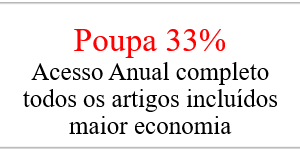- Joint Mozambican and Rwandan forces failed to dislodge insurgents in the Messalo area
- In response, jihadists expanded attacks, killing dozens and displacing thousands
By MOZTIMES
Pemba (MOZTIMES) – Joint Mozambican and Rwandan forces launched a major military operation in September to try to drive jihadist insurgents from their main bases along the banks of the Messalo River. After weeks of heavy fighting, the offensive collapsed. In retaliation, insurgents expanded their attacks across the districts of the province, while government forces failed to stop them in time.
According to military sources, the operation began in early September with a combination of air strikes and ground combat, targeting insurgent positions in the lower Messalo area, which separates the districts of Muidumbe, Macomia and Mocímboa da Praia.
This was the first major military offensive under President Daniel Chapo’s administration, who took office in January. The strategic goal was to showcase military gains on 25 September, Mozambique Armed Forces Day, just ahead of TotalEnergies’ expected announcement that it would resume work on the Mozambique LNG project in the Rovuma Basin. The ceremony is scheduled for this Thursday in Maputo.
But after three weeks of operations in the Messalo forests, Chapo addressed the nation on Armed Forces Day without being able to announce any tangible progress in the fight against terrorism in Cabo Delgado.
Despite the festive occasion, the President repeated long-standing instructions to military commanders and expressed frustration at the lack of results in his speech.
“We directed that your offices of work should preferably be operational theatres and trenches; we challenged all commanders to study new tactics, techniques, procedures and strategies to combat terrorism; and we instructed the sharing of necessary information among the three branches of the Defence and Security Forces,” said Chapo, among other recommendations.
Insurgents spread attacks across the province
The failed Messalo offensive prompted insurgents to disperse their attacks across almost the entire province.
In September alone, dozens of attacks were recorded, from Mocímboa da Praia in the north to Montepuez in the southwest and in Balama and Chiúre in the south. Attacks were almost constant in the central districts of Muidumbe and Macomia. By the end of the month, the violence had reached the neighbouring Nampula province, hitting the districts of Eráti and Memba, which border Cabo Delgado.
Data compiled throughout September indicates that at least 30 civilians were killed in insurgent attacks across multiple locations. In Mocímboa da Praia, two attacks on 7 and 22 September in the Filipe Nyusi neighbourhood left at least 10 people dead. In Macomia, four civilians were killed in the district capital. Other killings, less reported, occurred in remote villages.
In Montepuez district, insurgents struck several communities during the month. In Mahepe, about 40 kilometres from the district capital, they burned homes and killed four people. In Nacololo, in Nairoto administrative post, they beheaded a man kidnapped along with his wife. In Nantulo, clashes between insurgents and the Defence and Security Forces resulted in casualties on both sides. In Nicocue village, also in Nairoto, four civilians were beheaded. Still in Nairoto, the bodies of two civilians were found in Uncoane, presumed to have been killed by insurgents.
Over 13,000 displaced in September
The wave of insurgent attacks in September forced more than 13,000 people to flee their homes in just 30 days.
According to the International Organization for Migration (IOM), more than 4,200 people were displaced in the first two weeks of September – 2,100 from Mocímboa da Praia, 1,700 from Muidumbe and 269 from Montepuez.
Another IOM report, published on 16 September, noted that more than 5,700 people had fled due to attacks, mostly from Mocímboa da Praia (3,200) and Muidumbe (2,200). On 23 September, the organisation reported a further 3,600 displaced, including 2,100 from Balama and 1,480 from Mocímboa da Praia. (MT)



















